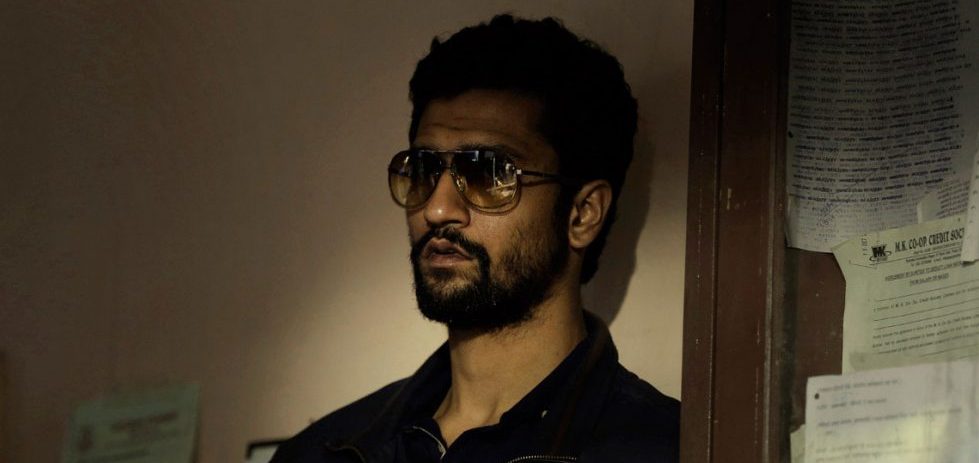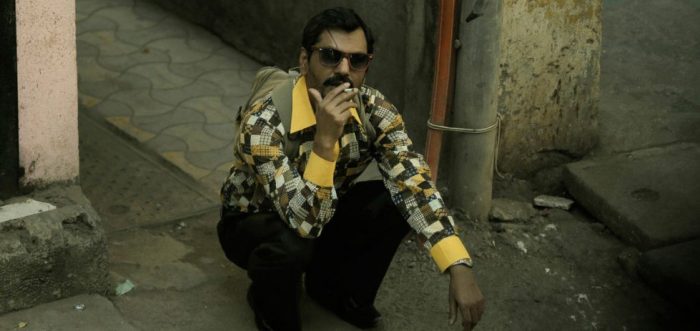
Indian cinema is currently going through a radical, evolutionary phase – both in terms of how it sees itself and also how audiences from all over the world experience it. And filmmaker Anurag Kashyap has been one of the leading forces of this change in sensibility. His 2012 gangster saga Gangs of Wasseypur has become a cult reference point of signposting this dramatic shift. Of course, this change in sensibility was anything but a natural progression. Kashyap has been fighting for it amidst puritanical opposition from the status quo throughout his entire career. His very first film, Paanch, remains unreleased theatrically because it was refused certification by the Indian censorship board, CBFC. His next directorial venture, Black Friday, based on the 1993 Mumbai bomb blasts, was held up due to censorship issues for two years before finally getting a release in 2007. And more recently, a film from his production house, Udta Punjab – highlighting rampant illegal drug trade and high drug use in the state of Punjab – once again got embroiled in censorship issues before being finally cleared for release by the Bombay High Court. Kashyap’s body of work is like that naughty child who gets sent out of the classroom for challenging the authority of the teacher. It stands in stark opposition to the mainstream escapism of Hindi cinema that many have come to associate with Indian cinema in a holistic sense. It is in that vein we are introduced to Kashyap’s latest – Psycho Raman (theatrical release title: Raman Raghav 2.0) – a film that is as equally disturbing and violently uncouth as it is undoubtedly brilliant.
The film, divided into several chapters, is one of Kashyap’s more singularly focused scripts. It follows the invariably intertwined paths of serial killer Ramanna (Nawazuddin Siddiqui) and a drug-addicted, trigger happy cop (Vicky Kaushal). Ramanna believes, much like the original serial killer Raman Raghav who terrorised the streets of Mumbai in the 1960s, that God talks to him directly. He develops an unhealthy obsession with the cop on his case and thus begins the most twisted love story you could ever imagine.
Kashyap takes the oft-mentioned thematic undertone of inherent morality – with lawmen and lawbreakers being two sides of the same coin – but completely flips the script when it comes to how the action plays out on screen. The film is disturbingly violent towards all the characters that inhabit this world. It is interesting to observe how Kashyap decides to frame the violence that unfolds. One of the most important recurring themes in his body of work – prevalent here as well – is the intentional naturalisation and normalisation of violence. The only reprieve from the build-up of tension on screen is more violence. It’s a very clever framing device that works surreptitiously. As the audience, you feel relieved when Ramanna kills someone, because that is the moment you can actually breathe and prepare yourself for the next violent act about to unfold on screen.
Much of the social commentary Kashyap intends to discuss from an Indian context is also threaded together around these acts of violence. Psycho Raman is a genre film, but it’s also a hyper-violent satire about how Indian maleness and masculinity exerts its dominance over others – particularly women and children – through systemic violence and abuse that it has become desensitised to. For example, there’s a scene in the film where the cop played by Kaushal, brings a girl with him and begins to sexually assault her because he can’t get an erection, while his girlfriend in another room is watching a panel discussion on television regarding the progress of women’s rights in India. This is the kind of deliciously twisted irony that Kashyap loves to indulge in. It makes an impactful statement on the status of and attitudes towards women in India.

There have been quite a few films at the Festival this year that have attempted to deconstruct masculinity in its many forms, with varying degrees of success, including but not limited to Chevalier, Everybody Wants Some!! and Goat. However, it’s Psycho Raman’s explicit links between acts of violence and a carefully constructed image of hyper-masculinity in an Indian context that sheds light on uncomfortable truths about how maleness in India assumes control and power through the use of force.
Kashyap has always been intrigued by the unspoken realities of Indian society. Where on the one hand the rate of globalisation has birthed numerous skyscrapers, malls and technological advancement; on the other hand, these pillars of globalisation seemingly coexist with vast expanses of slums and people living in abject poverty. Jay Oza’s cinematography expertly captures these paradoxes in Kashyap’s modern day Mumbai. Ramanna roams the unhygienic streets of Mumbai – full of filth, undisposed garbage and scraps of decomposing food – that embody these two very different Indias. At one point, in the search of food but not having any money, Siddiqui’s serial killer Ramanna finds a half-eaten McDonalds burger lying on the street that he picks up and devours. It’s a short scene, but it adds incredible depth to what on the surface may appear a simple, genre-based serial killer ‘hunt’ narrative.
No review of a Kashyap film would be complete without mentioning its soundtrack and score. One of Kashyap’s biggest strengths is how he uses music to undercut or exaggerate actions on screen. This quality once again comes to the fore in Psycho Raman. Music director Ram Sampath has given a varied soundtrack, replete with electronic, jazz and Sufi influences. After the success of Gangs of Wasseypur, lyricist Varun Grover is back with Kashyap on this album, penning some incredibly daft lyrics. The highlight of the film is how the jazz number “Behooda” is used to sustain beats of tension, prolonging the expectation of the inevitable act of violence to come. It’s unexpected – a melodious jazz number is the last thing you expect at that point – but it’s also sheer genius. Through the pen of Grover, you are given an insight into the psyche of the serial killer, while he is wreaking havoc on screen. That sequence alone is worth the price of admission.
Nawazuddin Siddiqui, since his breakout performance in Gangs of Wasseypur, has gone from strength to strength and has established himself as one of the most versatile actors in Hindi cinema today. As the serial killer Ramanna, Siddiqui is in top form. He manages to elevate each frame he’s in, infusing the character with the right balance of menace, pathological sensibility and an overall sociopathic oeuvre. It’s a delicate balance to strike, but Siddiqui manages it effortlessly. Vicky Kaushal as the cop is convincing, though doesn’t bring the requisite level of dexterity the role required. Sobhita Dhulipala as Kaushal’s girlfriend has an impressive debut. She is allowed to shine in a scene where she undercuts Kaushal’s aggressive and hyper-masculine demeanour with her matter-of-fact tone. Her timing in that scene is exceptional. For the most part though, this is Siddiqui’s show. With a scar across his forehead and a terrifying glow in his eyes, he makes go through an emotional roller-coaster.
Psycho Raman is violent, disturbing and at certain points, extremely uneasy to stomach. But that’s precisely the point. Behind this curtain of violence lies an uncomfortable reality India has yet to fully come to terms with. And Kashyap is more than happy to strip away that curtain and show us what lies behind it.
Around the Staff
| Jake Moody | |
